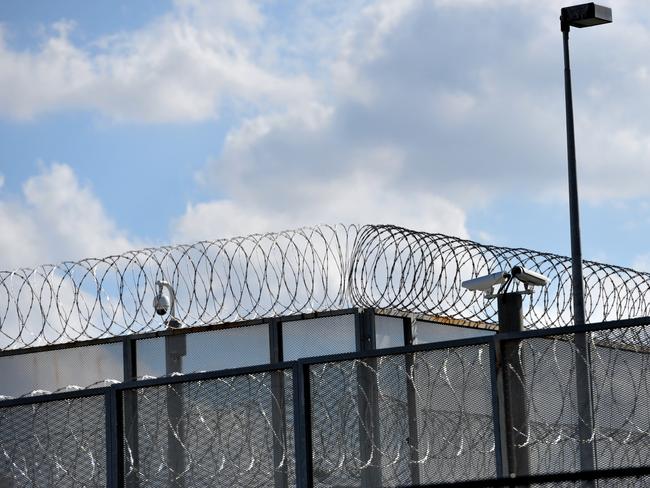Alleged NSW domestic violence offenders behind bars on remand in record high numbers
The number of alleged domestic violence offenders refused bail has hit a record high in recent months, as alleged coward attackers are hit with unprecedented scrutiny.

Police & Courts
Don't miss out on the headlines from Police & Courts. Followed categories will be added to My News.
Hundreds of alleged domestic violence offenders have been refused bail in recent months, with the number behind bars on remand now at a record high.
It comes on the back of a Daily Telegraph campaign to rebrand domestic violence as coward attacks, in efforts to sheet shame home to perpetrators who unleash terror behind closed doors.
New Bureau of Crime Statistics NSW figures reveal the number of adults in prison on remand for alleged domestic violence rose by 24 per cent from December 2023 to June 2024, with the number leaping from 1460 to 1811.
The NSW remand population is now the highest on record at 5763.
The bureau’s executive director Jackie Fitzgerald said domestic violence was the main driver behind the recent increase in the remand population.
“This is primarily due to an increase in the rate at which domestic violence defendants are being refused bail,” Ms Fitzgerald said.
“People waiting for their court date on remand make up an ever-increasing proportion of the NSW prison population.”

The percentage of alleged domestic violence offenders refused bail jumped from 18 per cent in the three months to December 2023, to 22 per cent in the three months to June 2024.
That equates to an additional 370 alleged domestic violence offenders being remanded.
As of July 1, the NSW Government also introduced sterner laws to combat domestic violence and more rigorous bail assessment processes to evaluate whether the most dangerous alleged offenders can safely be in the community on bail.
When assessing the potential risks of an alleged offender being released on bail, magistrates must now consider “red flag behaviour” for homicide – including physical abuse, sexual abuse, coercive or stalking behaviour, harm caused to an animal, and verbal abuse or intimidation.
The new legislation also allows prosecutors more power to “stay” bail decisions where individuals are charged with serious domestic violence offences – meaning that even if bail is granted, police can ask the NSW Supreme Court to reassess that outcome.
Under the new laws it is also easier to prosecute alleged perpetrators who use tracking devices in a domestic violence context.
“In June 2024, one-third of adults on remand were in custody for a domestic violence offence,” Ms Fitzgerald said.
The offences for which adults were refused bail include domestic violence assault, which has increased by 29 per cent since December 2023, and breaching an apprehended violence order, which increased by 32 per cent.
“The Aboriginal adult prison population is also at a record high, comprising 31 per cent of the prison population in June 2024,” Ms Fitzgerald said.
“Almost two-thirds of the increase in Aboriginal remandees in the last six months was driven by domestic violence offences.”
Despite the recent increase in the total prison population, the number of sentenced prisoners has fallen by 294 people in the past year.





